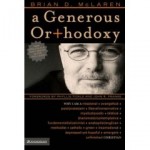I have, at very short notice (that's down to the undertakers round here) been asked to conduct a funeral for someone who died suddenly, overseas and became an organ donor, enabling two other people to live. This fact gives some comfort to the family and they (rightly) want it mentioned in the service. I am trying to think of a non-naff way to link this to a Bible reading, which is quite tricky. John 11 (I am the resurrection...) gets used in the opening bit anyway and I guess at a push there is John 10:10 (life in all its fullness) or 'unless an ear of wheat...' but I don't really like either very much. The internet is no help either!
A funeral is hardly the place to be talking about the Film Jesus of Montreal where organ donation was the way that the good news went to people of all nations (if you haven't seen the film, this will make no sense, but it was for me a very powerful ending) but there is in some sense a kind of resurrection, new life element to it.
Anyone got any ideas? (The funeral is Thursday a.m.). One day, when I've finished playing with Baptist historiography, I'll contribute something useful to pastoral/liturgical life by collecting and ordering precisely this type of resources.
 I am currently reading A Generous Orthodoxy, and thoroughly enjoying it. It is one of those books I almost wish I'd found years ago, one of those books that is somehow a 'friend' where you keep finding yourself nodding quietly and smiling as you think 'you too.' I don't agree with absolutely everything I've read in it, but it has such wonderful resonances that I am thankful to have discovered it. Whilst Mclaren's list of what he is becomes complex, I am happy either to say 'I don't do labels' or to be known as a 'happy heretic' or 'whacky Bappy', either of which is a little more snappy. I guess I am even a bit of a theological chameleon, in imitation of the apostle Paul (all things to all people).
I am currently reading A Generous Orthodoxy, and thoroughly enjoying it. It is one of those books I almost wish I'd found years ago, one of those books that is somehow a 'friend' where you keep finding yourself nodding quietly and smiling as you think 'you too.' I don't agree with absolutely everything I've read in it, but it has such wonderful resonances that I am thankful to have discovered it. Whilst Mclaren's list of what he is becomes complex, I am happy either to say 'I don't do labels' or to be known as a 'happy heretic' or 'whacky Bappy', either of which is a little more snappy. I guess I am even a bit of a theological chameleon, in imitation of the apostle Paul (all things to all people). This is me. It must be true, I have a statuette of her on my desk given to me as parting gift by one of colleagues back in 1999 (though that was in part an 'in' joke becuase he and I had assigned Mr Men to everybody in our office).
This is me. It must be true, I have a statuette of her on my desk given to me as parting gift by one of colleagues back in 1999 (though that was in part an 'in' joke becuase he and I had assigned Mr Men to everybody in our office).